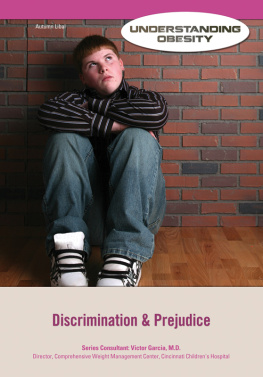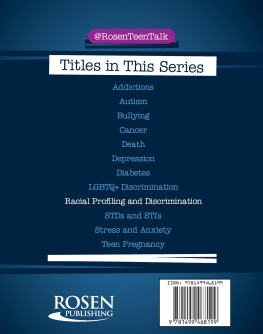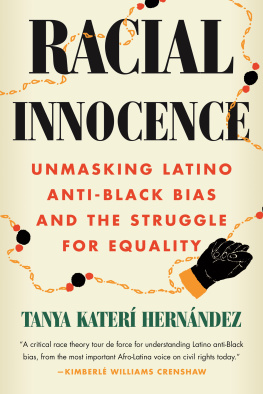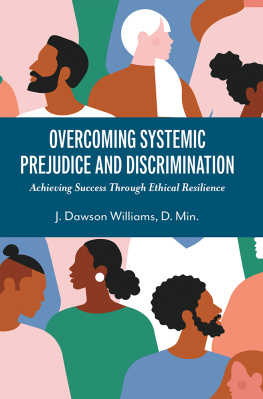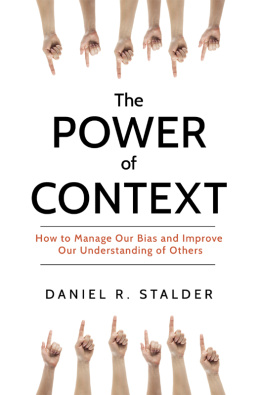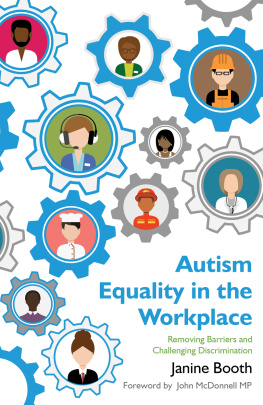Tanya S Osensky
HEIGHT DISCRIMINATION AND STRATEGIES FOR SOCIAL CHANGE
ForeEdge
ForeEdge
An imprint of
University Press of New England
www.upne.com
2018 Tanya S Osensky
All rights reserved
For permission to reproduce any of the material in this book, contact Permissions, University Press of New England, One Court Street, Suite 250, Lebanon NH 03766; or visit www.upne.com
Library of Congress Cataloging-in-Publication Data
Names: Osensky, Tanya S, author.
Title: Shortchanged: height discrimination and strategies for social change / Tanya S Osensky.
Description: Lebanon NH : ForeEdge, An imprint of University Press of New England, [2017] | Includes bibliographical references.
Identifiers: LCCN 2017026542 (print) | LCCN 2017033764 (ebook) | ISBN 9781512601442 (epub, mobi, & pdf) | ISBN 9781512601428 (cloth) | ISBN 9781512601435 (pbk.)
Subjects: LCSH: Short peopleUnited States. | Physical-appearance-based biasUnited States.
Classification: LCC HM1091 (ebook) | LCC HM1091 .O74 2017 (print) | DDC 306.4/613dc23
LC record available at https://lccn.loc.gov/2017026542
TO EVERYONE
WHO HAS
EVER BEEN
UNDERESTIMATED.
CONTENTS
ACKNOWLEDGMENTS
FIRST, MANY THANKS to Phyllis Deutsch and the team at University Press of New England for supporting this project when no one else believed in it. I appreciate all your work in shaping this book. Without you, it never would have found its way to readers.
I also would like to thank my friends Pam, Terri, and Susan, who have tolerated me through the writing of the book, talked things over, provided comments, and never made me feel like writing a book about height discrimination was a ridiculous idea.
My deepest gratitude goes out to my wonderful husband Rick, who is the most thoughtful, compassionate, and loving person I have ever known. I am also grateful for and proud of our two amazing sons, Adam and Asher. My three guys are the love of my life. Together with my mother, who has always supported and encouraged me, my family has been my greatest inspiration.
I am sure there are many other people I could thank, but I am keeping these acknowledgments short and sweet... like me!
ONE
Long or short,
a stick is always a stick;
tall or short,
people are always people.
CHINESE PROVERB
YOUR HIGHNESS
Ask yourself: Would you like to be taller? Chances are, you probably would answer yes. Except for those who are already very tall, most people would not mind being a little taller than we are already. If scientists could figure out a painless, cheap, and easy way to add a few inches to our height, without any negative side effects, many people would gladly do it. Not only do many of us want to be taller than we already are, but when we are asked what our height is, we tend to round up an inch or two. It is generally accepted that people round up their height, even on official documents like drivers licenses.
Why is there this widespread desire to be taller, and why do we tend to embellish our height? We usually dont think about it, but we instinctively perceive tallness as a positive thing. We seem to have an intuition that being taller carries some advantage over being shorter. For most of us, it just feels better to say that we are a bit taller than we really are, as though tallness is worthy of more respect, as if having an extra inch or two is some sort of accomplishment. Without reflecting on the reasons for wanting to be taller or for claiming to be taller, we just know in our gut that taller is better.
Perhaps for those who are generally happy with their height, adding only a few inches would make no difference. Consider then, how much money would you be willing to accept to be under five foot tall (about 153 cm) for the rest of your life? This is a twist on a study by Ohio State University professor Philip Mazzocco et al., in which he asked white people how much money it would take for them to accept being black for the rest of their lives. Most people likely think that being a little bit short is no big deal. Those of us who are of average height or taller probably would not think twice about giving up an inch or two, because that would still be in the range of what is considered normal height. But when asked about being an outlier, at under five feet, we might really pause and think about it. We would likely sense that such a short frame would no longer be perceived as normal. It is as if we instinctively feel that being extremely short would mean having to give up a significant advantage.
If you would require a great deal of money to accept being under five feet tall for the rest of your life, then you realize that being tall is an advantage that has real value. What has been called tall privilege refers to the social deference that tall people receive in our society just because of their height, without their actually doing anything to deserve it. Taller stature comes with having greater influence in social relationships and leads to certain benefits in the workplace, such as more leadership opportunities, higher pay, and other advantages that are explored later in this book. This may not be very noticeable when considering those who are only slightly shorter than average, but it becomes obvious to those who are closer to the extreme end of the height curve. It also is very striking when we are facing a situation in which two individuals are being compared, because our perception of someones height is relative. We intuitively understand that taller individuals are advantaged by this deference; otherwise we would not wish to be a little bit taller. As with male privilege and white privilege, those who are tall do not realize consciously that this privilege exists, but the fact that many people tend to round up their height and want to be taller speaks to our unconscious acknowledgment of this privilege.
We not only think positively of tallness in and of itself, but also we tend to think negatively about shortness. Those who benefit from the tall privilege have a sense of entitlement to its advantages because that is all they have known. Unfortunately, this sense of entitlement also comes with the corresponding sense of disdain that some taller people feel for those who are shorter. Short people, especially those on the tail end of the height spectrum, experience this disdain in several ways, from general social disrespect that leads to feelings of shame and inferiority to real workplace discrimination that affects income and career success.
Our society seems to be very comfortable with openly expressing disrespect toward short people. We seem to accept teasing and comments related to height in ways that would be considered rude if directed at those who are overweight or otherwise different from the norm. Usually the teasing is meant to be friendly, and the taller person does not mean any offense. However, most people would consider it impolite to comment about any other physical feature, such as weight or nose size, unless it was meant as a compliment. For example, we would never start a conversation by saying something like, Wow, you have a large nose; have you ever considered a nose job? or Wow, you are so heavy; exactly how much do you weigh? That would be considered rude. But no one thinks it is rude to joke and comment about a short persons unusual height in a similar manner: Wow, you are so short; exactly how tall are you?


